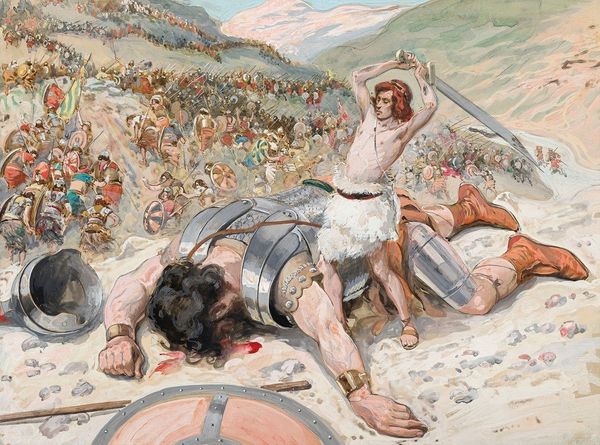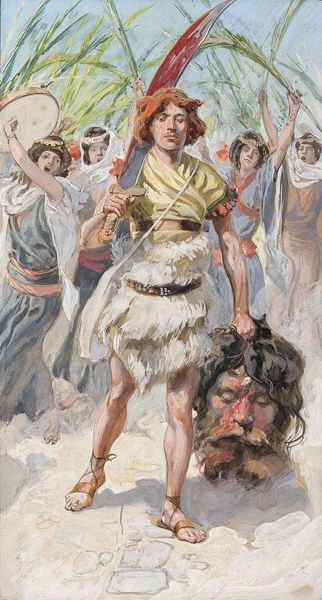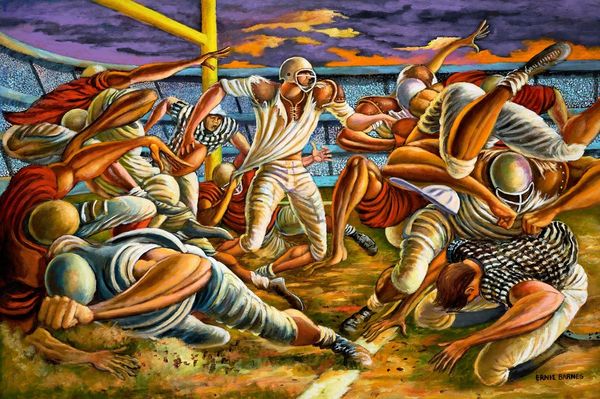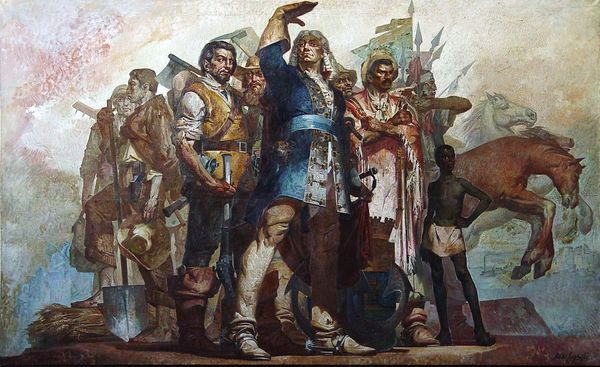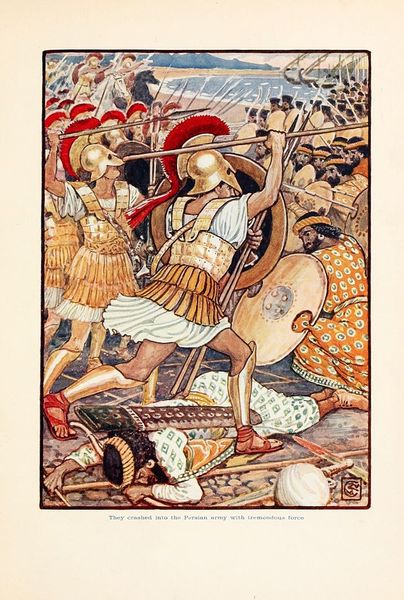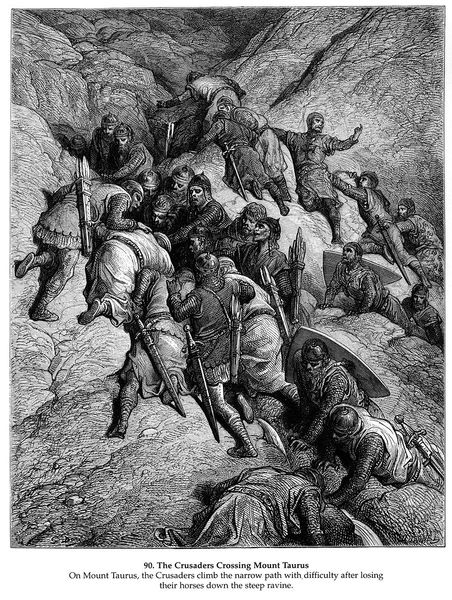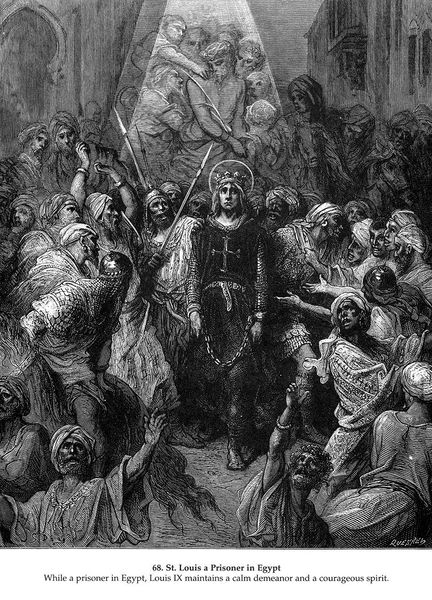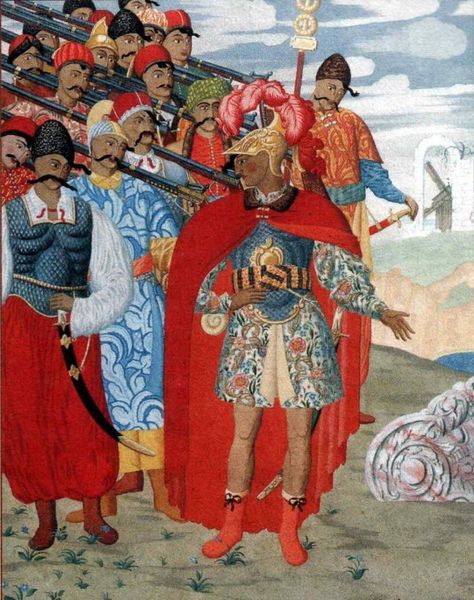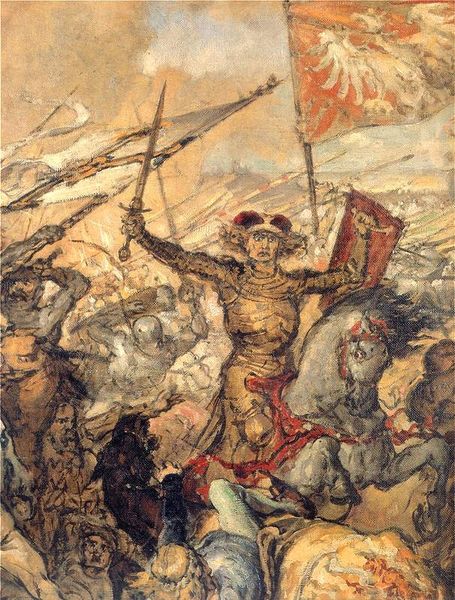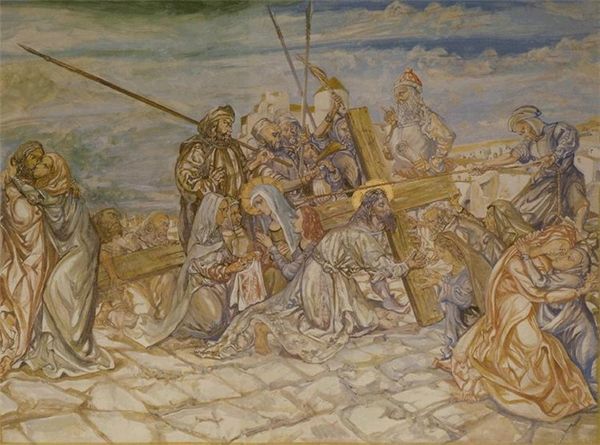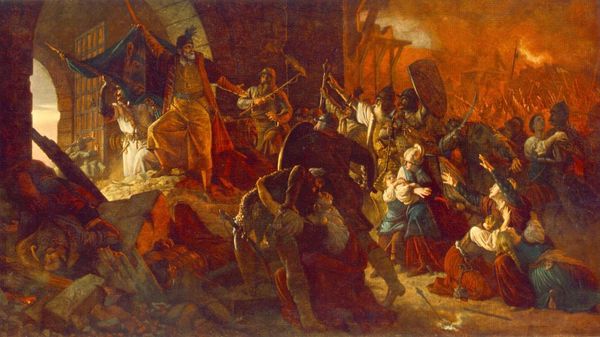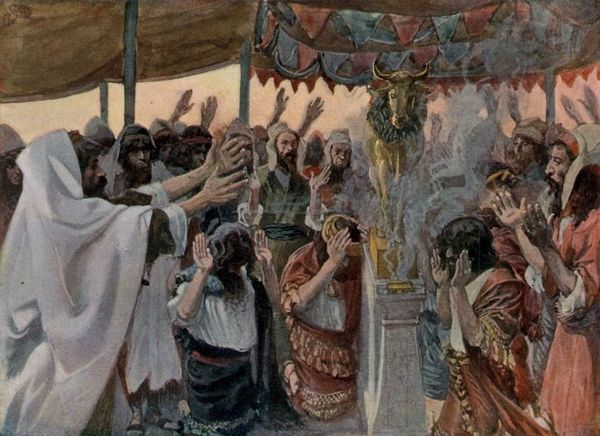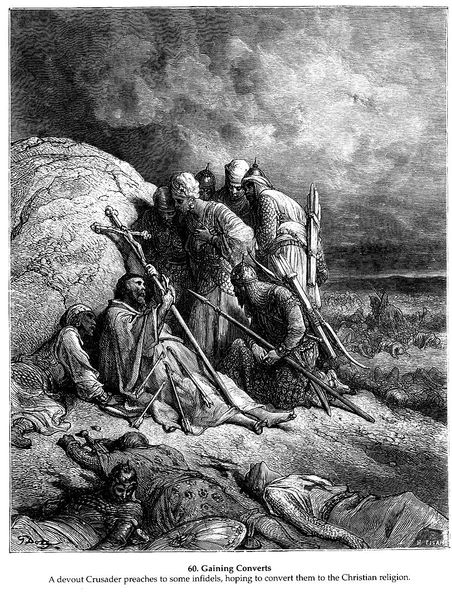
Copyright: Public Domain: Artvee
James Tissot captures a moment of biblical lore in this work, evoking powerful themes of strength, revenge, and divine intervention. Here, Samson, a figure of immense physical prowess, stands amidst his defeated foes, brandishing the jawbone of an ass—an unconventional weapon of symbolic weight. The jawbone, a crude tool, becomes a symbol of resourcefulness and raw power. We see echoes of this motif throughout history; consider the club of Hercules, also fashioned from natural resources. It represents primal force harnessed to overcome challenges. This image is not merely a depiction of victory but also a manifestation of a deeper, almost subconscious, desire for justice and retribution. The sheer number of slain enemies beneath Samson’s feet conveys an overwhelming emotional release. It is a cathartic vision of suppressed rage unleashed. This violent imagery speaks to a primal aspect of human psychology, where the lines between justice and vengeance blur, and the subconscious seeks equilibrium through acts of overwhelming force. The symbol of the jawbone continues to resonate, adapted and reinterpreted across centuries, always reflecting humanity's complex relationship with power, justice, and the darker aspects of the human psyche.
Comments
No comments
Be the first to comment and join the conversation on the ultimate creative platform.
